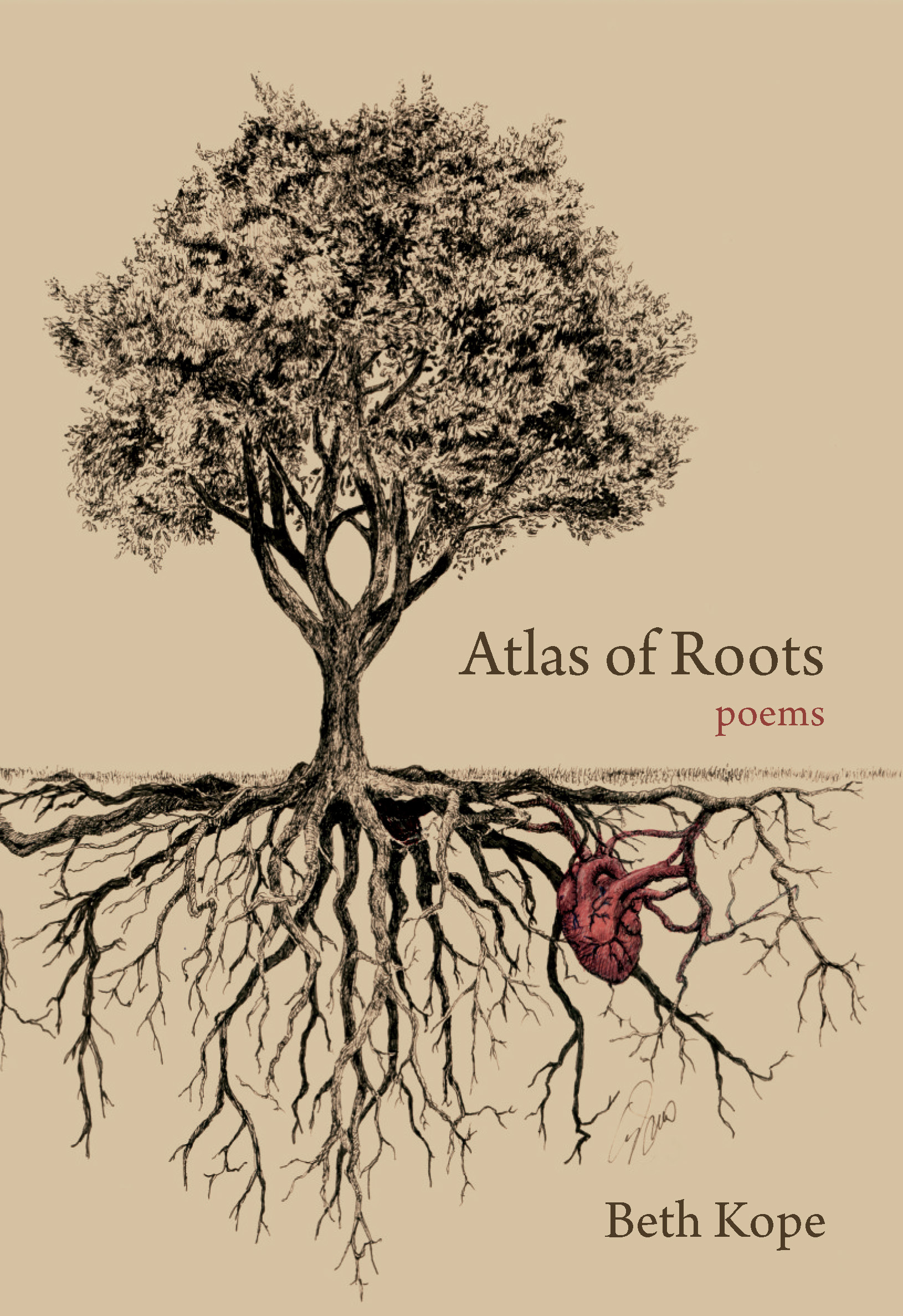Beth Kope’s Atlas of Roots is a collection of poems that will make readers consider their own “origin story” about how they came to be who they are now. Hers is a poetry that asks questions to find answers, with the voice of the poet trying to decipher who she was—and is—as an adopted child. Unique in its scope, Atlas of Roots maps out a life, from childhood to adulthood, as Kope searches for her own history.

In poems like “How to Pronounce Me,” “So-called,” and “Blanks,” Kope considers the importance of naming and identity. As well, in poems like “Different, But Better” and “Yours, Not Yours,” she considers how choice works into the equation of adoption. The image of babies in hospital cots—as if free to be chosen at random—has her write: “Choosing is what happens/when you find a litter of puppies.” In “Silence (Another Part),” she speaks of “the silence // of questions that circle the house, sniff at the door, paw / against glass.” For every question posed, about biological and adopted family histories, as well as medical ones, there end up being more questions spawned than answers easily discovered or given. There are, she says to her readers, so many stories and histories that make up a person’s life. The difficult part, it always seems, is trying to come to terms with not knowing, with understanding that closure isn’t always a Hallmark movie ending.
The theme of abandonment and loss applies to both mother and father figures. In “Father Redacted,” the speaker only knows—from a “strange phrase on my adoption form”—that her father “is a moon faced man.” In “When She Learned Her Father Was The Moon,” she writes: “When she learned the moon was her father, she rented / a boat, rowed to the horizon to welcome him. But / he stalled behind clouds, blurred and distant: lit / only a fraction of her face.” In “From My Birth Mom to Me,” the poet takes on the imagined voice of her birth mother, writing: “Give up. / Leave me alone. / I am not waiting for you.” Then, in “Driving Eastward,” a daughter thinks of her birth mother, “I am certain. / She has buried me.” All of this searching—to be expected, of course—ends with Kope discovering herself in a new way, coming to terms with the notion that all questions won’t be answered.
In “Promise Made,” she writes: “I am done / hauling uncertainty.” Further on in the same poem, she speaks of how the wind, rain, and moon will offer comfort when nothing else can. “I name these elements, / and I will wear them. // Perhaps / they are kin.” Kope turns to landscape in “The Places that Claim Me,” writing a poem that speaks of how “The land will not lie. / If it wants you, it will burst will owning.” Sometimes, we find ourselves when and where we least expect to, woven into the natural world after great loss. We lose history and family but then somehow gain self in a new way.
Bios
Kim Fahner
Kim Fahner lives, writes, and teaches in Sudbury, Ontario. Her latest book of poems is Emptying the Ocean (Frontenac House, Fall 2022). She is a member of the League of Canadian Poets, is the Ontario Representative of The Writers’ Union of Canada (2020-24), and a supporting member of the Playwrights Guild of Canada. Kim may be reached via her author website at www.kimfahner.com. [updated in 2023]

